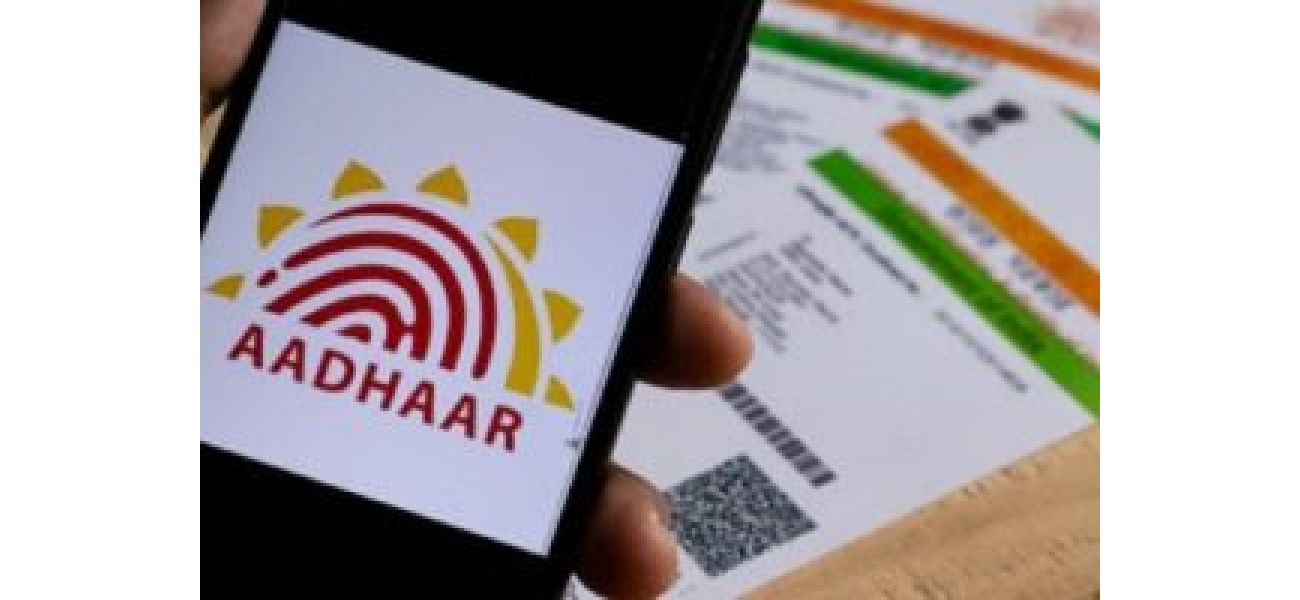Aadhaar is once again becoming a topic of controversy due to its role in the Indian government's welfare programs.
The Indian government is trying out a new app that combines face ID and AI to allow citizens to access Aadhaar services on their phones.
April 14th 2025.

The Government of India is currently in the process of testing a new Aadhaar app, which utilizes face ID authentication and artificial intelligence. This groundbreaking technology will allow citizens to conveniently access their digital Aadhaar services from their mobile devices. The app has been developed by the Unique Identification Authority of India, and it boasts instant verification through QR codes, as well as real-time facial recognition for authentication purposes.
The Aadhaar system was first introduced fifteen years ago, with the aim of streamlining the distribution of welfare benefits to those in need. At the time, it was marketed as a voluntary program. However, in recent years, it has essentially become a mandatory requirement for anyone seeking to live a normal life in India. Today, the all-encompassing Aadhaar is needed for a wide range of activities, such as opening a bank account, getting a SIM card, booking a hotel, traveling, or even shopping. Unfortunately, many people are not aware of any alternatives and simply opt for the easy path, falling into this trap. The problem with linking various services to a single ID number is that it increases the risk of security breaches, an issue that most educated Indians are not well-informed about, as privacy has never been a major concern in our society.
Critics argue that Aadhaar is primarily benefiting businesses, rather than serving the needs of the citizens. While many individuals are willing to share their personal information in exchange for convenience, they are also sacrificing their privacy. This has resulted in extensive surveillance over nearly all aspects of their lives. The most vulnerable members of society, such as the uneducated, manual laborers, and senior citizens, are particularly affected. They may encounter problems with their fingerprints or retinal scans, or even have their names or their fathers' names misspelled in the system, leading to difficulties in accessing benefits. In some cases, the loss of a mobile phone can cause immense hardships. And if the mobile number linked to an individual's Aadhaar is deactivated, it can be a nightmare. Furthermore, internet or power outages can also create chaos and turmoil in the lives of millions. A recent example of this was observed on 26 March, 2 April, and 12 April, when the entire nation was left in a state of uncertainty due to the UPI system of money transactions crashing.
Concerns over data breaches are not unfounded. According to a recent survey by LocalCircles, a leading community social media platform, a staggering 87% of Indian citizens believe that some of their personal data is already in the public domain or has been compromised in databases. This is a significant increase from 72% in 2022. More than 50% of those who believe their personal data has been leaked, specifically point to their Aadhaar or PAN card details as being at risk. The survey also reveals that citizens hold various entities responsible for this situation, including government agencies, telecommunications companies, banks, and e-commerce platforms. In 2018, a report published in the Tribune newspaper revealed that an online database containing the personal information of over a billion Indians, including their Aadhaar numbers, could be purchased for as little as $7. A 2022 audit conducted by the CAG of India also highlighted issues related to privacy and data security, as well as problems with the enrollment process, resulting in duplicate entries and inaccurate biometrics. These issues are bound to arise in a country like India, where many people work in a lackadaisical manner, with disinterest and disdain.
The government assures citizens that the new app will streamline the Aadhaar verification process, protect user privacy, and prevent misuse of personal data. However, concerns still linger regarding the security of this data. While Face ID technology offers convenience, it also poses significant security risks, such as data breaches, serious privacy violations that can even threaten lives, and the possibility of being hacked by deepfakes or other techniques. These are not mere speculations, as similar dangers have already been experienced in countries with stricter privacy laws. Unauthorized access to facial recognition data can result in identity theft and extensive surveillance. When this data is stored on a cloud server, it becomes vulnerable to unauthorized third-party access. Unlike passwords or credit card information, facial data is not easy to alter, making it an exceptionally sensitive type of information that requires robust protection – something India is not currently addressing.
The Aadhaar system was first introduced fifteen years ago, with the aim of streamlining the distribution of welfare benefits to those in need. At the time, it was marketed as a voluntary program. However, in recent years, it has essentially become a mandatory requirement for anyone seeking to live a normal life in India. Today, the all-encompassing Aadhaar is needed for a wide range of activities, such as opening a bank account, getting a SIM card, booking a hotel, traveling, or even shopping. Unfortunately, many people are not aware of any alternatives and simply opt for the easy path, falling into this trap. The problem with linking various services to a single ID number is that it increases the risk of security breaches, an issue that most educated Indians are not well-informed about, as privacy has never been a major concern in our society.
Critics argue that Aadhaar is primarily benefiting businesses, rather than serving the needs of the citizens. While many individuals are willing to share their personal information in exchange for convenience, they are also sacrificing their privacy. This has resulted in extensive surveillance over nearly all aspects of their lives. The most vulnerable members of society, such as the uneducated, manual laborers, and senior citizens, are particularly affected. They may encounter problems with their fingerprints or retinal scans, or even have their names or their fathers' names misspelled in the system, leading to difficulties in accessing benefits. In some cases, the loss of a mobile phone can cause immense hardships. And if the mobile number linked to an individual's Aadhaar is deactivated, it can be a nightmare. Furthermore, internet or power outages can also create chaos and turmoil in the lives of millions. A recent example of this was observed on 26 March, 2 April, and 12 April, when the entire nation was left in a state of uncertainty due to the UPI system of money transactions crashing.
Concerns over data breaches are not unfounded. According to a recent survey by LocalCircles, a leading community social media platform, a staggering 87% of Indian citizens believe that some of their personal data is already in the public domain or has been compromised in databases. This is a significant increase from 72% in 2022. More than 50% of those who believe their personal data has been leaked, specifically point to their Aadhaar or PAN card details as being at risk. The survey also reveals that citizens hold various entities responsible for this situation, including government agencies, telecommunications companies, banks, and e-commerce platforms. In 2018, a report published in the Tribune newspaper revealed that an online database containing the personal information of over a billion Indians, including their Aadhaar numbers, could be purchased for as little as $7. A 2022 audit conducted by the CAG of India also highlighted issues related to privacy and data security, as well as problems with the enrollment process, resulting in duplicate entries and inaccurate biometrics. These issues are bound to arise in a country like India, where many people work in a lackadaisical manner, with disinterest and disdain.
The government assures citizens that the new app will streamline the Aadhaar verification process, protect user privacy, and prevent misuse of personal data. However, concerns still linger regarding the security of this data. While Face ID technology offers convenience, it also poses significant security risks, such as data breaches, serious privacy violations that can even threaten lives, and the possibility of being hacked by deepfakes or other techniques. These are not mere speculations, as similar dangers have already been experienced in countries with stricter privacy laws. Unauthorized access to facial recognition data can result in identity theft and extensive surveillance. When this data is stored on a cloud server, it becomes vulnerable to unauthorized third-party access. Unlike passwords or credit card information, facial data is not easy to alter, making it an exceptionally sensitive type of information that requires robust protection – something India is not currently addressing.
[This article has been trending online recently and has been generated with AI. Your feed is customized.]
[Generative AI is experimental.]
0
0
Submit Comment





